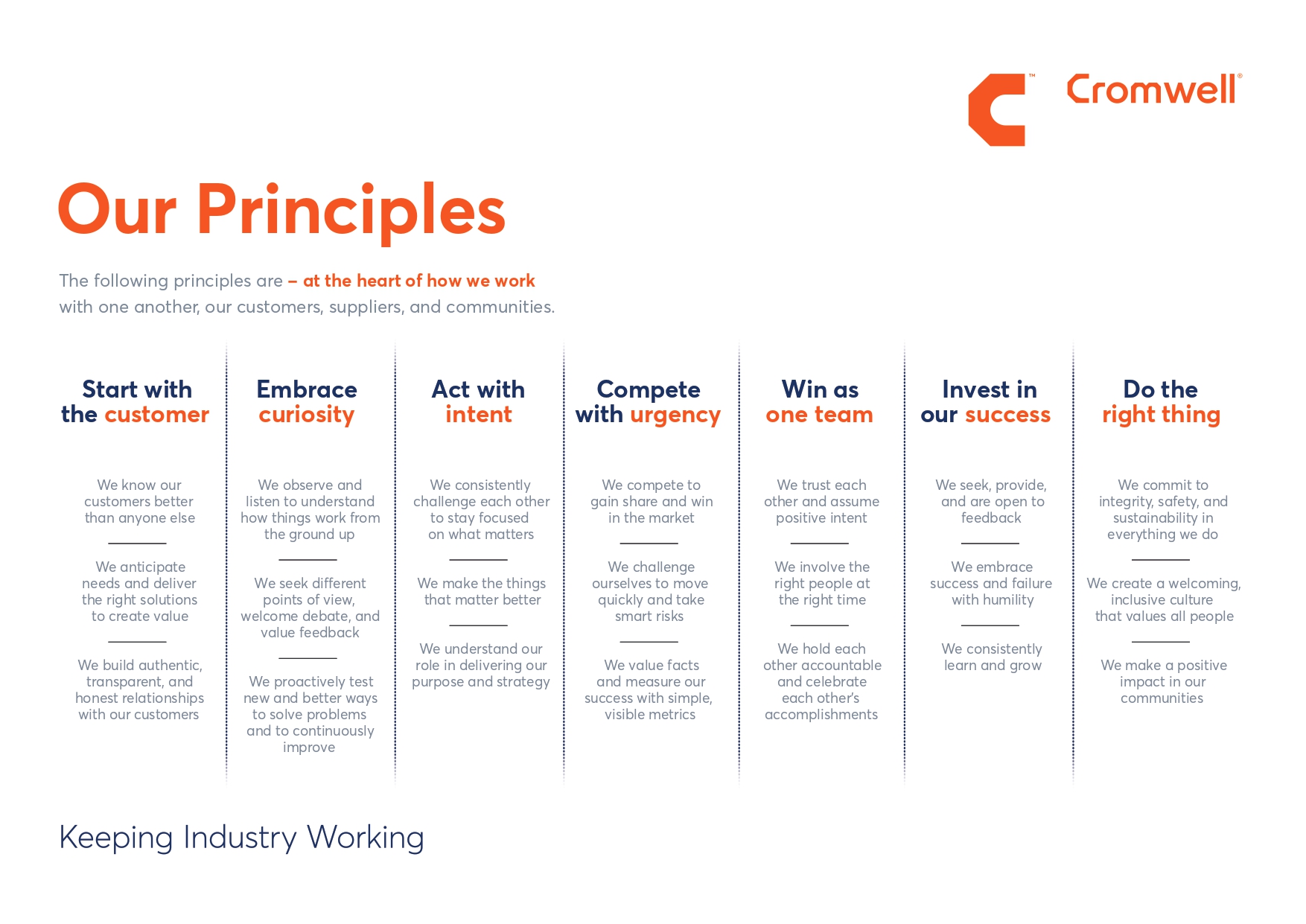
You have secured an interview with Cromwell, this is your opportunity to demonstrate how you meet the role profile selection criteria in addition to our Principles. As well as us finding out more about you when we meet, you’ll have a great opportunity to learn more about what it's like to work at Cromwell too, you’ll also meet your prospective line manager/team and to learn more detail about the role, and the overall business strategy.
The interview will contain a blend of motivational, competency/behavioural and role specific (technical) questions. Competency questions explore capability for the role; Behavioural questions explore a candidate’s demonstration of key values and Cromwell’s principles.
A competency is simply a skill, knowledge or behaviour that you need to have in order to be successful in the role.Whenever you use your inner drive to get through a difficult problem, or use your organisation skills to make sure a deadline is met, you’re showing competencies.
Competency-based interview questions usually start with something like, “Please give me an example of a time when you, “Tell me about a time when”, “Describe an occasion when”, “When has it been important to”, ’‘Can you give an example of when you…..”We might also ask some follow-up questions to gain more detail and those could be along the lines of, “What steps did you take to achieve that outcome?” “What part did you play?” “Would you do anything differently?”
The best way to phrase your answer is the STAR method; a way of structuring your responses to make sure you answer the question and include all the important details. STAR stands for Situation, Task, Action and Result – so your answer should describe the situation or the task you were involved in, then tell us what action you took, and finally, tell us what the result was and what you learned from it.
Specific – talk through the specific situation
Task – what task were you required to undertake?
Action – what action did you personally take?
Result – always tell the interviewer what the end result was/what was achieved?
Remember that the interviewer is interested in finding out about you and what you have achieved, not just about your team, project or your manager’s achievements. Remember to talk about the part you played in the team’s achievements, your contribution to the project’s deliverables and how you have supported your manager, and the business through the achievement of your objectives and goals.
During the interview, remember that you should try to answer the questions as specifically as you can. If the interviewer interjects or stops you from expanding on a particular point, often to probe further around a particular answer or to steer you back onto areas where you describe your competencies in more detail, please don’t let this put you off. The interviewer must ensure that you have sufficient opportunity to discuss the key competencies and behaviours they are interviewing for.
Remember that this is a two way process, you will have the opportunity to ask the questions that are important to you, generally at the end of the interviewer’s questions.
For more tips on how to impress in your interview, there is a wealth of information on the internet should you wish to prepare even further with beneficial hints and tips.
Should you require any assistance, please do not hesitate to contact the Talent Acquisition Partner working with you, or any member of the team in their absence.


